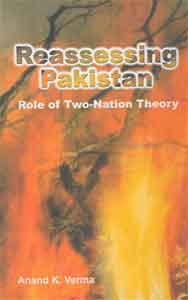The Nuclear Policy
In this context, the possession of nuclear weapons by the Pakistani Armed Forces becomes a matter of grave concern for India. Given their psyche there can be no certainty that they will never be tempted to use these against India, irrespective of the consequences which could follow for Pakistan. Any scenario can serve as an excuse or be treated as a provocation. There is a Pakistani acceptance that at least on three occasions in the last two decades the leadership there had examined the use of nuclear potential against India.? On a number of occasions, Pakistani leadership has demonstrated a propensity towards irrational military behaviour. Kargil was the latest exhibition of such foolhardiness. It showed that existential deterrence did not operate as a check.
On the contrary, the military strategic planners in Pakistan went by the calculations that the Indian policy of no first use would deter India from crossing the Line of Control or the international border. This was sheer reckless nuclear blackmail on the part of Pakistan. Pakistan’s nuclear programme is India specific. Leaders of that country have not hesitated from saying that they reserve the right of a nuclear strike against India under certain circumstances and that is why they do not subscribe to the principle of no first use. A small coterie of people there decides on such issues without recourse to wider consultations or true understanding of where Pakistani interests actually lie. It will be futile to try to analyse what those circumstances might be when a Pakistani nuclear bomb might be launched.
Past behaviour, a deep sense of insecurity and the two-nation theory make a rational judgment on Pakistani future behaviour impossible to arrive at. This is one fit case for the worst-case scenario to determine policy options Pakistan is always vainly searching for balance of power with India but it is refusing to recognise, what other countries of the world are now coming to recognise, namely that India does not try to change this balance, it is built on the geographical realities of the subcontinent.
 If the former Chief of Army Staff, General Karamat is to be believed “no real peace process has ever been started between India and Pakistan which could decide against a military option and in favour of peace.”8 This statement underlines that the Tashkent Declaration, Simla Agreement and Lahore Declaration all stand rubbished in the eyes of the Pakistani military. No wonder Kargil occurred and may recur again, all because the two-nation theory admits of no solution of Kashmir unless it is on terms favourable to Pakistan.
If the former Chief of Army Staff, General Karamat is to be believed “no real peace process has ever been started between India and Pakistan which could decide against a military option and in favour of peace.”8 This statement underlines that the Tashkent Declaration, Simla Agreement and Lahore Declaration all stand rubbished in the eyes of the Pakistani military. No wonder Kargil occurred and may recur again, all because the two-nation theory admits of no solution of Kashmir unless it is on terms favourable to Pakistan.
Notes:
- Akmal Hussain: 'Pakistan, The Crisis of the State' p. 208, ed. Asghar Khan 'Islam, Politics and State'.
- Stephen Cohen: 'The Pakistan Army', 1998 edition, Oxford, Pakistan Paperbacks, Karachi, p. 86.
- Abdul Qayyum: 'On Striving to be a Muslim', Lahore Islamic book centre, 1978, as quoted by Stephen Cohen, The Pakistan Army, p. 95-96.
- Imtiaz Alam: News, Nov. 1, 2000 as quoted in Pot, November 16, 2000, p. 4722.
- Stephen Cohen: 'The Pakistan Anny' p. 40.
- Command and Staff College, Quetta, Staff Course: 'Military System: India', quoted by Stephen Cohen 'The Pakistan Anny' p. 78.
- Agha Shahi, Air Marshall Zulfiqar Ali Khan, Abdul Sattar: The News, Oct. 5, 1998. These high personages, policy makers of yester years, refer to three episodes of mid 1980 (Kahuta), 1987 (Brasstacks) and 1990 (whi~h brought Robert Gates, US Dy. National Security Adviser, to India and Pakistan) as illustrating the value of Pakistani nuclear capability. Sattar is now Foreign Minister in Musharrafs cabinet.
- Dawn: Oct. 8, 2000 as reported in Pot, November 13, 2000, p. 4675. General Karamat was addressing Pakistan Professional Forum at Dubai on 'Peace in South Asia, Opportunities and Challenges' on October 26, 2000.




